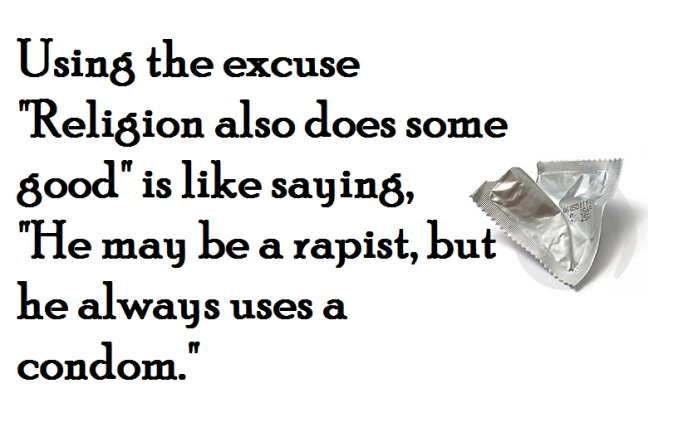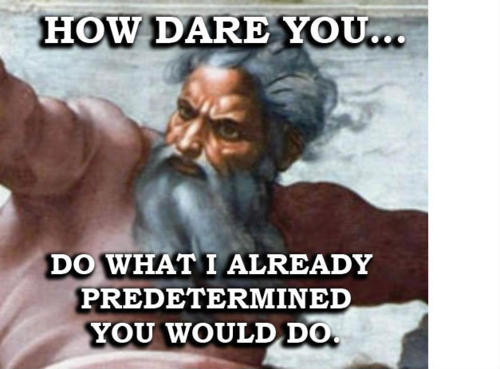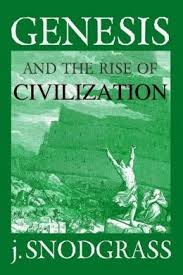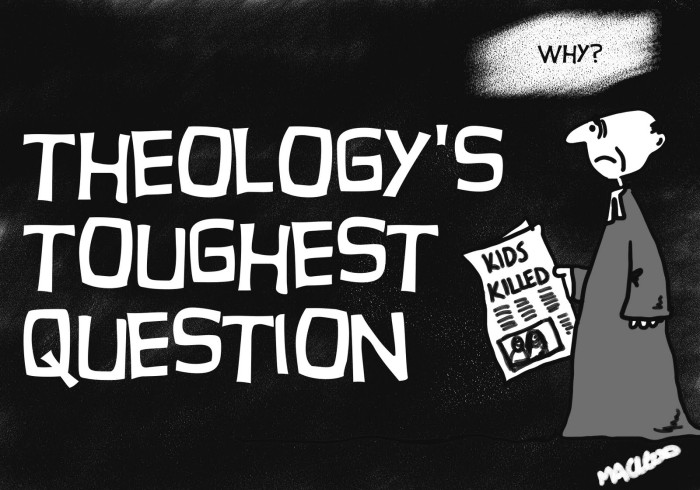I had the immense privilege to interview the great and incredibly gifted movie maker Kevin Miller. He is a unique person in many respects and an outstanding Christian having left behind a great part of his conservative Evangelical baggage.

Leaving Conservative Evangelicalism
Lotharson: Hello Kevin, I’m very glad you accepted to give me this interview. Could you please sum up your personal and religious background for the benefit of our readers?
Kevin Miller: I was raised in a theologically liberal but morally conservative home. My grandfather was actually a minister in the United Church of Canada, which is probably one of the most liberal Christian denominations in the country. However, at age 9, I had a “born again” experience at an evangelical Christian Bible camp. I pretty much kept that experience a secret though b/c my parents were pretty antagonistic toward that way of thinking. In my teens though, both of my parents underwent a similar experience, and we wound up attending an evangelical Mennonite Church. From there, I attended a Bible College, eventually earning a degree in youth ministry. After college, I spent 8 months in Kenya doing missionary work. Then I came back to Canada and went to university. That’s when my life and faith sort of imploded. I didn’t have any real Christian community around me, and all of the stuff I had been suppressing all those years came out. So I spent a few years wrestling with a lot of demons before finally emerging from the wilderness due to a reencounter with some friend from Bible college–and also a powerful reencounter with God. I felt like the prodigal son who had finally come home. But I still only had one foot inside the circle, so to speak, b/c I felt that somehow I’d been brainwashed or indoctrinated during my time spent in the evangelical world, and I didn’t know how to move forward. Thankfully, some good mentors came into my life around that time and started to provide me with a framework in which to analyze my experience.
Kevin Miller: I’ve always been a pretty analytical person, constantly questioning things. It’s probably some sort of unhealthy coping mechanism, b/c it makes it pretty difficult to buy into a particular theological system or faith community. I always tend to find myself on the boundary. I think that’s where I feel most comfortable.
Academic persecutions against intelligent design?
Lotharson: This is quite a fascinating story and helps better understanding your works and creations. My next question would be about your thoughts on intelligent design (ID). You wrote the script for the movie “Expelled” describing the academic intolerance towards ID. What did motivate you to do this?

Kevin Miller: I was recruited for that project following the release of my first film, “After…,” a psychological thriller that takes place in the subterranean world beneath Moscow. How that goes together with the battle between Darwinian evolution and Intelligent Design I’ll never know. Originally, I was called in to attend some development meetings about what was then a hypothetical film about Intelligent design starring Ben Stein. I was really passionate about the topic (it appeals to the frustrated academic in me). But I actually told the producers not to hire me, b/c I didn’t think I had the sense of humor the project required. However, a few days later I got the call, and I was on the job. I had never worked on a documentary before and I had no idea what I was doing. Thankfully some of the other people around me did. So what motivated me? An intense interest in the topic as well as the opportunity to work on another film and to stretch myself creatively. Oddly enough, that set me on a path I had never anticipated in terms of documentary films, to the point where that’s what I’m best known for now.
Lotharson: Okay. Do you personally believe there’s a real academic persecution against ID?
Kevin Miller: I would call it more of a bias against Intelligent Design as a viable explanation for the origin, complexity and diversity of life and the origin of the universe. One one level, many people see ID as merely a Trojan Horse for some form of biblical creationism. I disagree. While most proponents of ID are people of faith, the brightest lights amongst them are truly seeking to engage in a scientific enterprise, particularly in the area of information theory, for example. The question is, what is the best explanation for the information we find in DNA? Ideally, scientists will always infer to the best explanation, follow the evidence wherever it leads. However, how do we define “best”? This is where the rule of parsimony kicks in. The best explanation is always the simplest explanation, the one that requires the fewest number of unverifiable assumptions. As Richard Dawkins likes to point out, God is pretty must the most complicated explanation someone can offer, because now you have to explain where God comes from. Even so, as Dawkins admits in the film, the idea that some form of intelligence may be responsible for the universe and everything in it is neither inherently religious nor unscientific, even though it may be friendly to a theistic worldview. But scientists are not philosophers. They are observing, measuring, experimenting, etc. If you watch Sean Carroll ‘s recent debate with William Lane Craig, for example, you can see that many non-scientist ID proponents are simply speaking a completely different language than cosmologists, biologists, and other scientists who are on the front lines running the numbers. They’re trying to solve complex equations, to explain mechanisms according to physical laws, not philosophize about how those mechanisms and laws came to be.
All that to say, I don’t think there is any more persecution against ID than there is against astrology or leprechauns. If anyone from any of these communities came to the table with a viable model to explain a natural phenomenon, people would pay attention.
I remember asking Michael Behe how science would be different if ID was the prevalent theoretical model. He had no answer. That troubled me. No surprise his interview didn’t make it into the film.

Universal salvation
Lotharson: Thanks! I agree to a large extent with what you’ve said. Ironically enough, you were yourself “expelled” by the same conservative Evangelicals complaining about this alleged state of affairs. Could you please tell us more about this?
Kevin Miller: I wasn’t exactly expelled. I was just prohibited from teaching a course on documentary filmmaking at Trinity Western University (located in Langley, BC, Canada) due to my views on hell. Ironically, I was allowed to screen “Hellbound?” there several months earlier, and a few months after being barred from teaching on campus, I was invited to present a paper at a philosophy event DEFENDING my views on hell. So go figure. It’s a strange world. I will say, however, that my views on many subjects have shifted substantially over the past decade, thanks in large part to my extensive interaction with the atheist community re: “Expelled.”
Lotharson: How did your views evolve?
Kevin Miller: Well, you can’t undergo the sort of scathing criticism I faced as a result of “Expelled” without it affecting you. I made a point of trying to engage our critics in a meaningful way, and I took their criticisms of our film and my own views seriously. Through discussion and debate, you get to see things from a number of different sides. And I came to see many of the things I felt quite certain about didn’t quite merit that level of certainty. I guess you could say that’s when the serious deconstruction of my belief system began, and it’s been an ongoing project ever since. My departure from traditional evangelical beliefs about hell is just a small part of that process.
Culture war and bigotry
Lotharson: I guess that criticism from atheists and other non-Christians can be quite a help for reaching more reasonable views. The problem I have with ANTI-atheists is that they constantly resort to mockery and emotional bullying, in an useless and oftentimes counter-productive way. Did you experience that too?

Kevin Miller: Mockery and bullying is present on all sides. That’s something that disillusioned me during “Expelled.” I found that many people on all sides were more concerned with scoring points against their opponents than seeking the truth through meaningful dialogue. It’s an understandable occupational hazard though, b/c you can only go around the Mulberry bush so many times before you get frustrated at your opponents’ seeming inability to grasp the obvious truth to which you have committed your life. However, as Jonathan Haidt points out in “The Righteous Mind,” most of us arrive at our philosophical/theological positions via an emotional rather than a rational process. So until we have some kind of transformational emotional experience, we remain rather impervious to rational arguments launched against our views. So we shouldn’t be surprised to see emotions running high. Emotion is at the heart of everything. So is identity. We don’t respond well when our identity is threatened.
Lotharson: Precisely! Jon Haidt is quite an outstanding scholar and I greatly appreciate his efforts to overcome the culture war. Now I’d be interested to know more about your views of hell.
Who were the authors who influenced you the most as you were considering the possibility of universal reconciliation?
Defense of Christian universalism
Kevin Miller: It all started with Brad Jersak, author of “Her Gates Will Never Be Shut: Hope, Hell and the New Jerusalem.” I edited the book for him back in the fall of 2008. That experience is what convinced me I had to make a documentary on this topic, although I wasn’t in a position to begin pursuing it until nearly three years later.
The thing that struck me about Brad’s book was how little what I was taught about hell was actually in the Bible. He also introduced me to the various streams of interpretation regarding final things throughout the history of the church. I should have known this stuff (I’d been to seminary after all) but it was all new to me. I should also note that I was well prepped for this mind-shift due to another book I had edited for Wayne Northey. It’s a novel called “Chrysalis Crucible.” It really got me questioning the connection between God and violence.
Another book, coedited by Brad Jersak and Michael Hardin, called “Stricken by God?” faced this question head-on, arguing that the atonement and nothing to do with God punishing Jesus for our sins. Once you start to think along those lines, the idea of hell as a place of eternal, conscious torment pretty much falls to the wayside. In terms of universalism, some key influences were Thomas Talbott, Robin Parry, Richard Beck, Brian McLaren, Eric Reitan, Sharon Baker and Julie Ferwerda. They showed me that a viable case could be made for a non-retributive view of God and hell. Of course, Michael Hardin is also front and center throughout. So is his “rabbi,” Rene Girard.
Lotharson: The following passage is widely seen as extremely problematic for universal reconciliation. Matthew 25:46 (NET) “And these will depart into eternal punishment, but the righteous into eternal life.”
Most Conservative Evangelicals use the following syllogism:
1. We know that the saved will live eternally in bliss
2. The damned will be punished in the same way the elects are rewarded
3. Thus the damned will suffer eternally.
What’s your take on this text?

Kevin Miller: This isn’t nearly as problematic as it appears. It all comes down to the word translated as “eternal.” In Greek, the term is “aionios,” an adjective that means “of an age” or “age-long” rather than “never-ending.” So it can be interpreted as either qualitative or quantitative, or perhaps both. At any rate, in this parable, the righteous will receive a reward in keeping with the age to come and the wicked will receive a punishment in keeping with the age to come.
There is no reason to assume the reward or punishment will last forever. Furthermore, the intent of this parable isn’t to provide a systematic theology of the afterlife but to emphasize how strongly Jesus identifies with “the least of these.”
The other thing I chuckle at when people try to use this to establish a belief in hell as eternal torment is that the qualification for avoiding hell has nothing to do with faith. In fact, the sheep had no idea they were doing anything that merited a reward. Works is the deciding factor here, in particular how we treat the poor. So if proponents of eternal torment want to use this parable to bolster their case, they’ll also have to concede that faith doesn’t enter the equation.
The only thing that matters is righteous action–at least if you read this parable in isolation. And if you want to combine it with other parables and verses that emphasize faith, you’re sort of stuck in a contradiction. Unless, of course, you want to say the good works are the fruit of faith. But then I’ll remind you that the sheep had no idea they were serving God by helping the poor. So once again, it’s problematic.

On inerrancy and picking and choosing
Lotharson: These are good points! I also find it quite stunning that Evangelicals PICK and CHOOSE which parts of the passage they take at face value and which parts they allegorize for avoiding “salvation by work”. Do you agree with me that there are conflicting voices in the Bible, so that inerrantists INEVITABLY have to cherry-pick things?

Kevin Miller: Everyone cherry-picks. You have to. Even Paul and, dare I say it, Jesus cherry-picked! If you look at how Paul uses the Old Testament, for example, he pays virtually no attention to the original context of many of the verses he quotes.
Peter Enns does a great job in “The Evolution of Adam” of explaining how Paul’s view of Adam’s role in human sinfulness is completely absent from the Old Testament. He adapts Scriptures and theological ideas for his own purposes. In doing so, he was merely in keeping with his times. Many of his contemporaries did exactly the same thing. And how often does Jesus pluck a verse here or there and then completely revolutionize the traditional interpretation?
All that to say, circumstances shift constantly. Therefore, so does our perspective on the Bible. All of us suffer from confirmation bias–the tendency or perhaps the temptation to pick and choose passage of Scripture that support what we already believe. That’s the thing that struck me about Jersak’s book when I edited it. Speaking back to the evangelical world in which he had spent most of his career, he said if we are going to be biblical about hell, let’s be biblical.
That is, let’s listen to everything the Bible says about final things, not just the parts that support what we already believe. That’s a highly problematic approach for someone who desires a hermetically sealed theology, but it’s the only approach that is in keeping with integrity. All that to say, we all tend to take parts of the Bible literally and allegorize other parts as it suits us. The key is to be aware of this tendency and to work consciously against it. This is where peer review can play a key role–as long as the entire peer review process isn’t biased in the same direction!
Speaking of which, I have a bit of a pet peeve re: peer review. Academics like to hold it up as the golden standard, an almost infallible means of achieving truth. The thing we often fail to consider is how the entire peer review process can be just as biased–perhaps more heavily invested in a bias–than individual academics. So if the peer review process holds individuals in check, what holds the process in check? I’m sure you wouldn’t put much stock in an astrologist’s insistence that his or her conclusions were correct because they had been peer-reviewed by other astrologists. 🙂
Hell and cognitive dissonances
Lotharson: Yeah, this is why Conservative Evangelicals and militant atheists peer-reviewing their own community are truly laughable 🙂
Conservative Evangelicals often argue that atheists cannot live consistently with their assumption that they and their loved ones are insignificant molecular machines. While I largely agree with this, I am convinced that the cognitive dissonances they are facing are FAR WORSE.
For they believe that most people will eternally suffer as a punishment for sins they could not have avoided, having been cursed with a sinful nature by the almighty Himself. Do you agree with this assessment?

Kevin Miller: Here’s the thing: Theists argue that unless there’s a creator, everything is meaningless, and our attempts to create meaning absurd, because if God or some sort of equivalent being (or race of beings) doesn’t exist, the only determining factors in the universe (or multiverse) are chance and necessity. We are nothing but stardust come to life for a brief moment, so to speak. Atheists counter this assertion by saying we don’t need an ultimate being to give our lives mean. We can assign our own proximate meaning to other people, objects, events, locations, rituals, etc. If theists are completely honest, they’ll have to admit that’s pretty much what they’re doing anyway.
As Richard Dawkins points out, challenge a Christian with horrific commands from the Old Testament (such as the stoning of adulterers), and they’ll say those rules don’t apply anymore. As we noted above, we all pick and choose which parts of the Bible to take literally and which to ignore. So as Dawkins points out, even though people like to say the Bible or God is the ultimate authority, we are still applying some sort of standard that actually supersedes the Bible. In fact, the only reason we believe the Bible has any authority in our lives is because we have become convinced of his validity or inspiration. And even in this case, it’s the arguments in favour of the Bible’s authenticity that are our true authority. So when it comes to ultimate meaning versus proximate meaning, I think the atheists are onto something.
As for cognitive dissonance, this is certainly one of the key problems facing Christians who believe in a God who violently punished his son on the cross and then threatens to punish the wicked forever in hell. This runs smack into cherished beliefs about God loving his enemies, love keeping no record of wrongs, etc.
Think about it: If God is perfectly loving, and if our own love is perfected in heaven, how could we possibly tolerate people suffering forever in hell? Our compassion would grow in proportion to our awareness of their suffering. Therefore, if anyone winds up in hell, I can’t see how we all wouldn’t be there, with the “righteous” ministering to those who are suffering. The only way around this is for God to either render us unaware of the suffering of our loved ones or for God’s love to be revealed as something completely different than what Christ taught.
Fundamentalism and child abuse?
Lotharson: I once stated that folks STRESSING the doctrine of eternal torment too much to their kids are abusing them. This made many of my readers angry and I regretted having written the sentence since it gives the impression that all people teaching Eternal Conscious Torment are abusive. This is not what I meant since my secular Catholic parents taught me that (concerning evildoers) and I never felt abused at all.
That said, I still believe that fundamentalists terrorizing their children in the hope they will “make a decision for Christ” are abusing them. Do you think this is the case and that this can really cause them deep psychological wounds?

Kevin Miller: If it’s abuse, it’s unintentional. I was “saved” through a gospel presentation that included a threat of hell. And I believe it affected me psychologically in such a way that it essentially derailed the next two decades of my life. But the people who presented that version of the gospel to me were some of the most loving people you will ever meet. Years later I was at a function where I witnessed a kindly old Mennonite lady making a similar presentation to my own young children–who had never heard of hell–and I was horrified. I didn’t want to see them inflicted with such a horrific view of God. There’s a meme going around where God or Jesus says, “Let me save you… from what I’m going to do if you don’t let me save you.” I think that gets right to the bedrock on this one. Think of a parent saying that about him or herself to a young child. It would be considered abusive or at the very least highly coercive.
Calvinism and predestination to eternal torment
Lotharson: I agree it is almost always unintentional. Calvinists are arguably the most vocal opponents of universalism. They believe that God created evil and caused Adam and Eve to fall because He needs to SHOW OFF his punitive wrath. Without eternal torments, he would be unable to maximize his glory and his undeserved grace. What’s your opinion on this?
Kevin Miller: I have to quote Michael Hardin here and say that Calvinism or Reformed Christianity is nothing but paganism dressed up in Christian clothing. The God who would do such a think in no way resembles the Jesus of the gospels, who was a friend–not an enemy–of sinners.
When I say “paganism,” BTW, I mean no affront to modern day pagans. What I mean is they have basically taken the old, sacrificial view of God of pre-Christian religions and made him the center of the Christian faith–which I see as an apologetic against exactly this sort of God. Jesus never demanded sacrifice. Rather, he sacrificed himself. So I would say Calvinism is 180 degrees away from Christ.
At least my interpretation of Jesus. 🙂

Lotharson: 🙂 Some Calvinists I talked too agree that (according to all criterion of human justice and love) the god they worship is a fiend. But they went on saying that we cannot judge God by our own morality and that He defines what is good and bad. What is your response to this?
Kevin Miller: I would agree. God does define morality. And, playing by their own rules, if Jesus is God, he defines morality in ways that utterly defy their theological system. So it seems to me they have two choices:
1) admit that Jesus was lying or
2) admit that God has a double standard–one form of morality for humans, another for himself. Either way, the results aren’t pretty. Either love never fails, never keeps a record of wrongs, always hopes, always perseveres (cf. 1 Corinthians 13) or it doesn’t. Calvinists are saying it doesn’t. So not only are they contradicting Jesus’ teaching that what makes us perfect like God is love of enemy (Matthew 5), they are also contradicting the clear teaching of Paul.
Lotharson: Most Calvinists I know are nice people. But what could occur if they began imitating the behavior and attitude of the God they profess to believe and trust upon?
Kevin Miller: Exactly. As Frank Schaeffer likes to point out, most people who believe in such a punitive view of God live above their theology. They’re far nicer than the God they worship. And thank God for that! But on a meta-level, I believe our entire society reflects a version of the Calvinist God, b/c our entire justice system is based primarily on retribution. Not only our justice system but our prison system, our economic system, our theological systems, our war machines, even the way many people discipline their children is a shadow version of the punitive God who demands sacrifice in order to achieve peace. This is one of the key insights of Rene Girard and Michael Hardin, who have had a huge influence on me over the past few years. Our entire society is based on scapegoating and sacrifice. It’s how we create culture. This is why Michael says toward the end of “Hellbound?” that the entire church is missing the gospel. That’s because the gospel isn’t divine sanctification of our sacrificial machinery; it’s the antidote to it, it’s the foundation for a new kind of community–call it he Kingdom of God–based on self-sacrifice instead. In this regard, I think we have completely missed the radically subversive message of Christ. It undercuts everything.
Libertarian free will?
Lotharson: It seems to me that you agree with Calvinists that there is no such thing as libertarian free will, am I right? Is everything determined by God?
Kevin Miller: Wrong. I believe we are co-determining–at our core, humans are imitators. We look to others to see what we should desire. And then we compete with each other for these objects of desire or states of being, thinking it will give us the sense of identity or immortality we seek, anything to transcend the fear of death that gnaws at our insides, the feeling that we are insignificant. I tend not to look at people as individuals but as members of a herd. The “self illusion” is one of the most problematic illusions we face right now. Alongside it is the notion of free will. We are pack animals for the most part, and our powers of volition are much weaker than we imagine. I’ll go back to Jonathan Haidt (“The Righteous Mind“) on this one. Also Bruce Hood (“The Self Illusion”), Ernest Becker (“The Denial of Death”), Richard Beck (“The Slaver of Death”) and Rene Girard (“Things Hidden Since the Foundation of the World”) on this one. All of these writers and many others point to a similar conclusion.
Lotharson: Okay, thanks for the correction. I didn’t know you believe in libertarian freedom. You once said that freedom is just a mean to the end of our salvation. But what if freedom is an end in itself? What if God’s main purpose in creating us was that we develop a good personality naturally desiring Him, so that those lacking it won’t inherit eternal life but BE NO MORE? Is it not conceivable as well?
Kevin Miller: I would hope the end game is self-actualization, that we all become the ultimate fulfillment of our potential. Exactly how that is achieved doesn’t concern me all that much.
Palestine and Christian sionism
Lotharson: Okay. I have a last question. Many Evangelicals support unconditionally the state of Israel. A young pastor once told me that the modern Palestinians are the descendants of a people that Israel refused to annihilate during Joshua’s conquest, and that the struggles of modern Israelis can be traced back to this ancestral “sin”: they should have left nothing which breathes alive. What are your thoughts on this issue?

Kevin Miller: Despite having co-written “With God on Our Side,” which criticizes extreme forms of Christian Zionism, I’m not sure if I know enough about the situation to comment on it. However, I will say this: I don’t believe God ever told the Israelites to annihilate anyone in the Old Testament. Second, many evangelicals fail to distinguish between the Jewish people and the State of Israel. Israel is a secular state created in 1948. Within that state are Jews, Palestinians and all sorts of other people. No Christian should ever support any secular state uncritically. So how the State of Israel treats the Palestinians living within its territory (as well as the Gaza Strip and the West Bank) is a completely separate issue in my mind from historical/theological concerns going back to Joshua’s purported conquests of Canaan.
What we can say for sure is that treating anyone as a second-class citizen is wrong. So are acts of terrorism. Whenever theological ideas are used to justify either action, they go against the clear teachings of Christ.
Lotharson: Okay Kevin, this marks the end of our discussion.Thank you for all the time you’ve granted me! I wish you all the best for your ongoing projects.
Thematic list of ALL posts on this blog (regularly updated)
My other blog on Unidentified Aerial Phenomena (UAP)




























